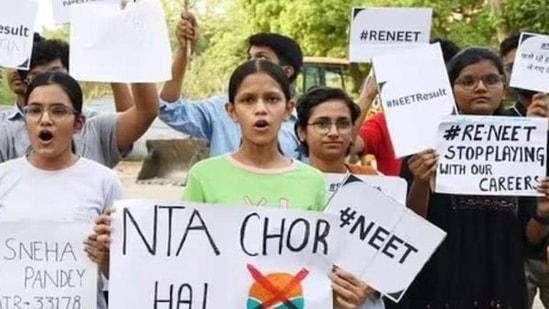The Centre has firmly opposed the idea of conducting a retest for NEET-UG 2024, presenting its case to the Supreme Court of India. The government argued that a retest is unnecessary and would have a detrimental effect on honest students who have already worked hard and appeared for the examination under fair conditions. This stance comes amid growing calls for a retest due to alleged irregularities and technical glitches reported during the original examination.
The National Eligibility cum Entrance Test (Undergraduate) or NEET-UG is a highly competitive examination that serves as the gateway to medical and dental courses across India. Every year, lakhs of students prepare rigorously for this exam, hoping to secure a seat in a prestigious medical institution. Given its importance, any suggestion of irregularities or malpractices triggers widespread concern among students and parents alike.
This year, reports surfaced of various issues during the NEET-UG 2024 exam, ranging from technical glitches to allegations of cheating and paper leaks in certain centers. These reports led to a public outcry, with a section of students and parents demanding a retest to ensure fairness and transparency. They argued that the integrity of the examination process had been compromised, affecting the chances of genuine aspirants.
In response to these concerns, the Centre submitted a detailed affidavit to the Supreme Court, outlining its reasons for opposing a retest. The government emphasized that conducting a retest would not only be logistically challenging but also unfair to the majority of students who took the exam honestly and diligently. It argued that a retest could disrupt the academic calendar and delay the entire admission process, causing unnecessary stress and uncertainty for students.
The Centre’s affidavit highlighted that the National Testing Agency (NTA), which conducts the NEET-UG, had taken adequate measures to ensure the examination’s smooth conduct and integrity. It pointed out that the reported issues were localized and did not affect the examination on a national scale. The government also assured the court that all complaints were being thoroughly investigated and that strict action would be taken against those found guilty of malpractices.
The Centre further argued that the call for a retest was driven by a small group of students and parents, and that the majority of candidates had not faced any significant issues. It stressed that conducting a retest based on isolated incidents would set a dangerous precedent, leading to similar demands in future examinations and undermining the credibility of the testing process.
The Supreme Court, while hearing the arguments, acknowledged the complexities involved in conducting a retest and the potential adverse impact on honest students. The court also recognized the need to maintain the integrity of the examination process and ensure that genuine students are not penalized due to the actions of a few.
In its deliberations, the court weighed the Centre’s arguments against the grievances of the petitioners who had called for a retest. The petitioners contended that the reported malpractices and technical glitches had significantly disadvantaged many students, compromising their chances of admission to medical colleges. They argued that a retest was necessary to restore fairness and give all students an equal opportunity.
The Supreme Court is expected to deliver its verdict soon, taking into account the arguments from both sides. This decision will have far-reaching implications for the future conduct of national-level entrance examinations in India. It will also set a precedent for how authorities address and resolve issues related to examination irregularities and malpractices.
In addition, the Centre’s opposition to a NEET-UG 2024 retest underscores the complexities involved in balancing fairness and logistical feasibility in competitive examinations. While addressing legitimate concerns of students affected by irregularities is crucial, ensuring that honest and hardworking students are not unduly penalized is equally important. The Supreme Court’s forthcoming verdict will be pivotal in determining the way forward, aiming to uphold the integrity of the examination process while addressing the grievances of aggrieved students.

